Over 10 years ago, I got a diagnosis that would change my life. I was told that I had Episodic Ataxia Type 2: A rare degenerative Neurological condition. I was misdiagnosed with epilepsy for most of my life, so with this new diagnosis, I was overcome with so many emotions. It was a mix of excitement, fear, and surprisingly happiness, but above all else, I was afraid of what this would mean for my future.
After being diagnosed, I spent a lot of time speaking to my doctor and conducting my own research. I learned that there are hundreds of types of Ataxias, all ranging in severity, and I am one of the lucky ones. Episodic Ataxia Type 2 is rare, and my symptoms aren’t too severe, at least not yet. Anyone who meets me won’t know I have a disability unless I tell them, which can be a blessing in disguise.
I say that because many of my symptoms mimic those of being drunk, such as stumbling, falling, and incoordination. When someone sees me stumble and fall, they automatically assume the worst. Still, it can be nice when people don’t see I have a disability.

On the bright side…
If I am ever cast in a movie, I won’t need anyone to do my stunts for me. I can fall off anything without even trying. I even have the ability to trip over air. I know, I am craaaaaazy talented.
Oh, and my symptoms don’t stop there. I am also a victim of violent head tremors and migraines that feel like I am being hit on the head numerous times with a hammer (fun stuff!).
I have spent a good part of my life fighting what we now know to be Ataxia. I was determined not to let it ravage and take over my body. I had dreams I wanted to pursue despite the doctors telling me independence wasn’t going to be easy for me and may not even be possible. Luckily, I had a support network of family and friends who believed in me. Who pushed me way beyond my limits, and because of them, I have been able to live alone, travel the world, and even move abroad!
Over the years, I have learned so much about myself and what I am capable of. I started this blog because I was passionate about travel and wanted to help those with and without limitations travel as well. Traveling with a hidden disability has been challenging, to say the least, but I am a firm believer that those challenges and lessons I have learned along the way have made me who I am today.
Now, without further ado, here are 9 lessons I have learned traveling with a hidden disability.
Hey! Are you looking for more insight into what it’s like traveling with a hidden disability? You should check out some of these posts:
Table of Contents
- 1 I endure hurtful jokes
- 2 I can’t take anyone too seriously.
- 3 It’s okay to ask for help even for simple tasks.
- 4 Being honest about my disability with strangers is easy.
- 5 I have to be careful when picking what destination I want to visit.
- 6 I shouldn’t expect to keep up with everyone else
- 7 Traveling solo is easier than traveling with people.
- 8 I need to set boundaries.
- 9 Having a disability is nothing to be ashamed about
I endure hurtful jokes
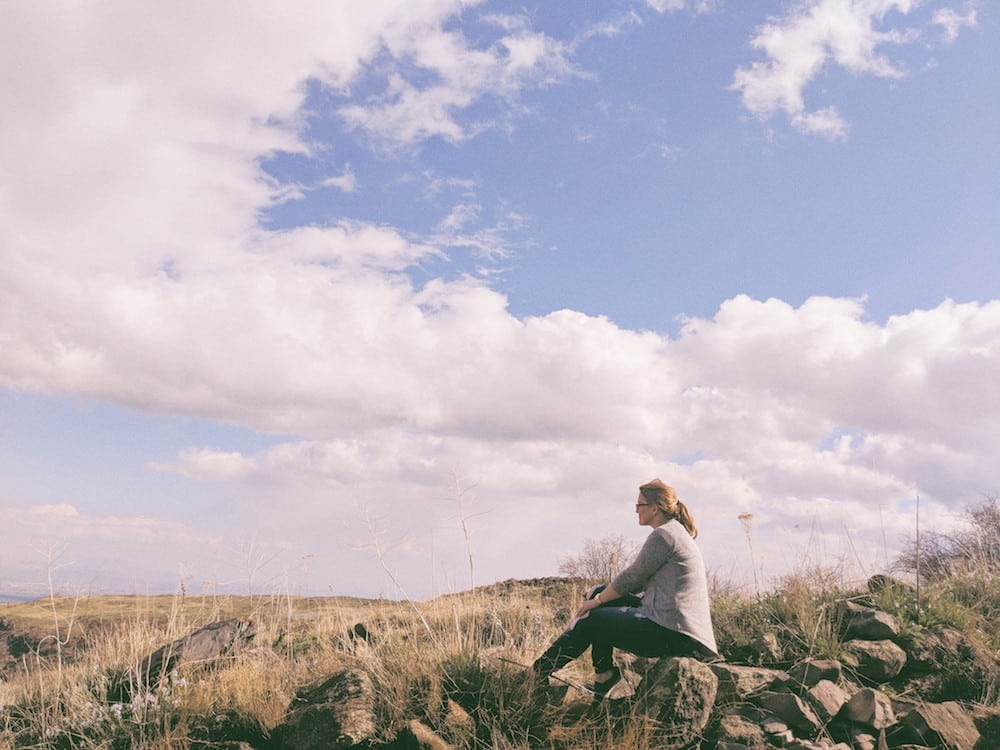
If I had a penny for all the “are you drunk jokes?” I get daily I would be a millionaire. I know what you are probably thinking. Why am I getting so worked up over a harmless drunk joke? These jokes have followed me my entire life. I actually used to get pretty upset whenever someone would ask “if I was drunk” because, to me, it felt like they were making fun of my disability.
I remember one time in particular when I was traveling around Armenia. I was on tour with my hostel and some travel companions when we came upon some castle ruins. The hike up looked pretty easy, but I was very wrong.
I stumbled and tripped pretty much the entire way up, and once we got to the top, I was a frustrated and sweaty mess, so when my tour guide asked if I was drunk, I lost my marbles as the kids in the 80s may have said. I wasn’t in a good mood, to begin with, and that joke just added fuel to the fire that was burning deep inside me. I told her I had a condition that made me clumsy, and I would appreciate it if she did not make any more jokes.
If I have learned anything about dealing with these jokes on my travels, fighting hurt with humor always wins. An example of this would be my trip to Colombia a few years ago when I did a boat tour. Walking on boats is hard for anyone, especially someone with Ataxia. When the boat docked at our first stop, I needed 5 people to help me off.
They started making tons of drunk jokes, and I fought back with, “No, the boat’s drunk.” It’s a pretty bad joke, but they thought that was pretty funny.
I can’t take anyone too seriously.
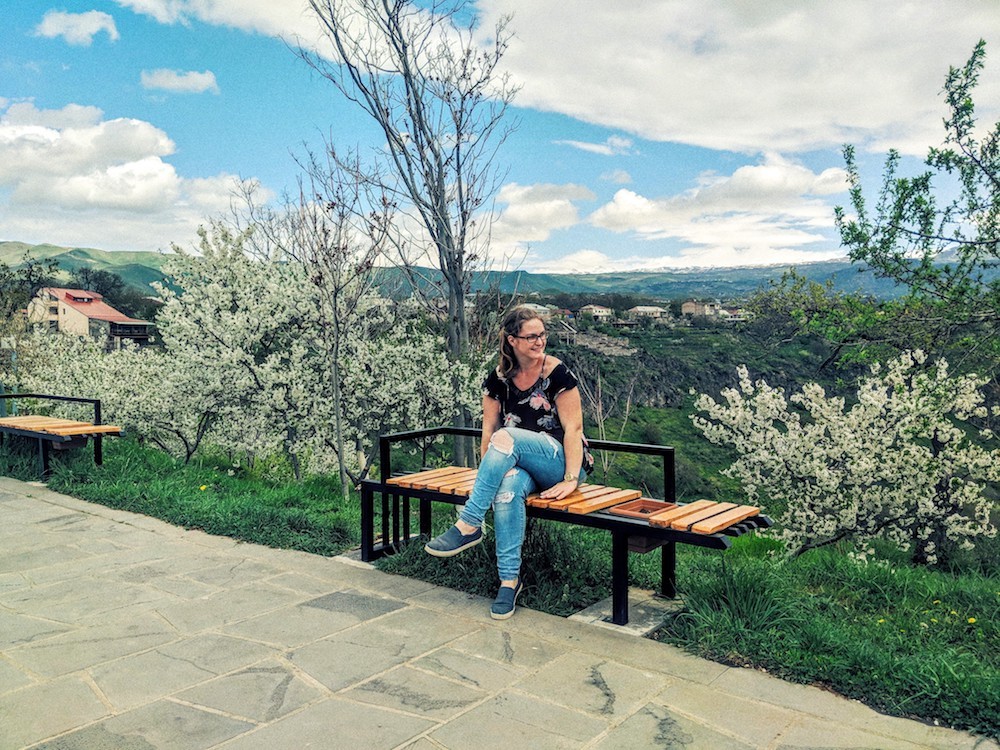
As Alan Watts so charmingly put it: “As you proceed through life, following your own path, birds will shit on you. Don’t bother to brush it off. Getting a comedic view of your situation gives you spiritual distance. Having a sense of humor saves you.” I couldn’t agree with that quote more. Taking life too seriously can destroy you. Okay. Maybe that is just a tad dramatic, but in a sense, it’s true!
I am a firm believer that if you can learn to laugh at your ridiculous self, you will be a lot happier, and you will make the people around you happier. This has been a hard lesson for me to grasp because I am emotionally protective of myself and don’t want to seem weak, but most people who make jokes are trying to be funny, so I have learned to laugh along with them.
It’s okay to ask for help even for simple tasks.
Asking for help is something I have never been good at. I like to think of myself as someone who can take on whatever challenges the world throws at me. I learned the hard way that life doesn’t really work like that. No one gets through life alone. If you do, you must have some crazy superpower and are being incredibly selfish for not sharing it with the rest of us.
For example, have you ever thought about whether you can carry a tray of food to a table without spilling? Probably not. I never thought much about that either until I was the victim of the spilled tray incident in Greece.
My friend and I were on a boat tour, and we were heading back to our hostel. We decided to have lunch on the boat, so we grabbed our trays, filled them up, and as we were walking back to our table, I completely lost my balance, and the contents of my tray went flying. To say I was embarrassed is an understatement.
Everyone was incredibly kind, and they ended up bringing me a new tray, but I learned that carrying my food on a tray is not something I should be attempting on my own. Several months later, when I was visiting Harry Potter World, I was grabbing lunch at one of the restaurants. I made sure once I had my tray of food to ask someone to help me bring it to my table.
Most people wouldn’t think twice about carrying a tray of food, but it’s one of the most difficult tasks for me.
Being honest about my disability with strangers is easy.
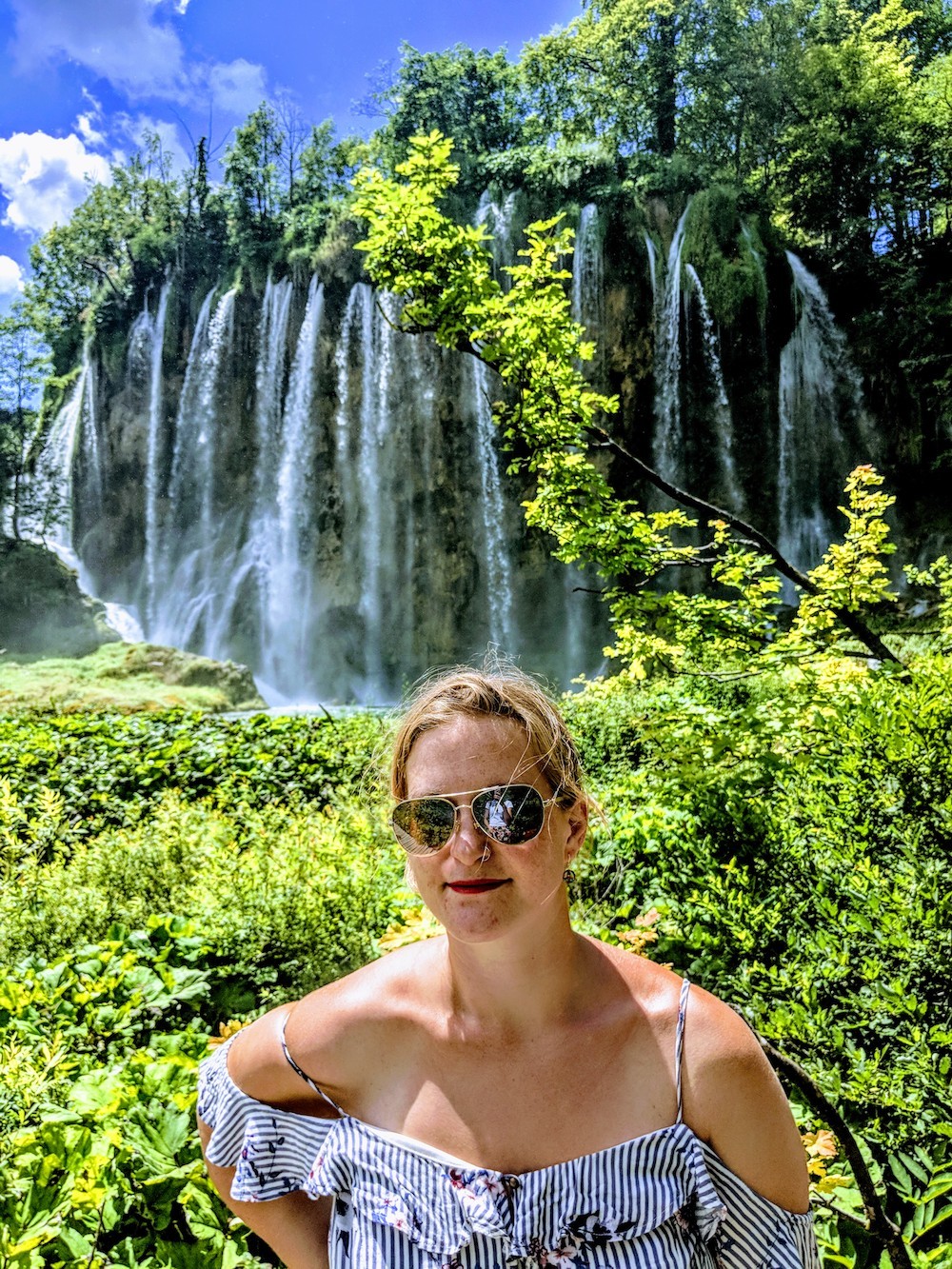
As Carlos Ruiz Zafon so elegantly put it: “Sometimes it’s easier to talk to a stranger than someone you know. Why is that?” “Probably because a stranger sees us the way we are, not as they wish us to be.”
It’s funny how easy it can be to talk to strangers. I joke with my friends that when I stay in a hostel in a room full of strangers, they pretty much know my life story in the first hour of meeting and there is some truth to that.
When opening up to strangers there isn’t that initial fear of judgement you get from someone you care about. Until recently, I would hide my diagnosis in the back of my mind like a deep, dark secret. I was worried what people would think of me. Looking back, I know how silly that sounds, but I had a lot of fear and anxiety back then.
Travel has taught me that strangers are understanding. Most of the time, when I tell someone about my condition, they are curious. They don’t know anything about Ataxia, but they are eager to learn more.
I have to be careful when picking what destination I want to visit.
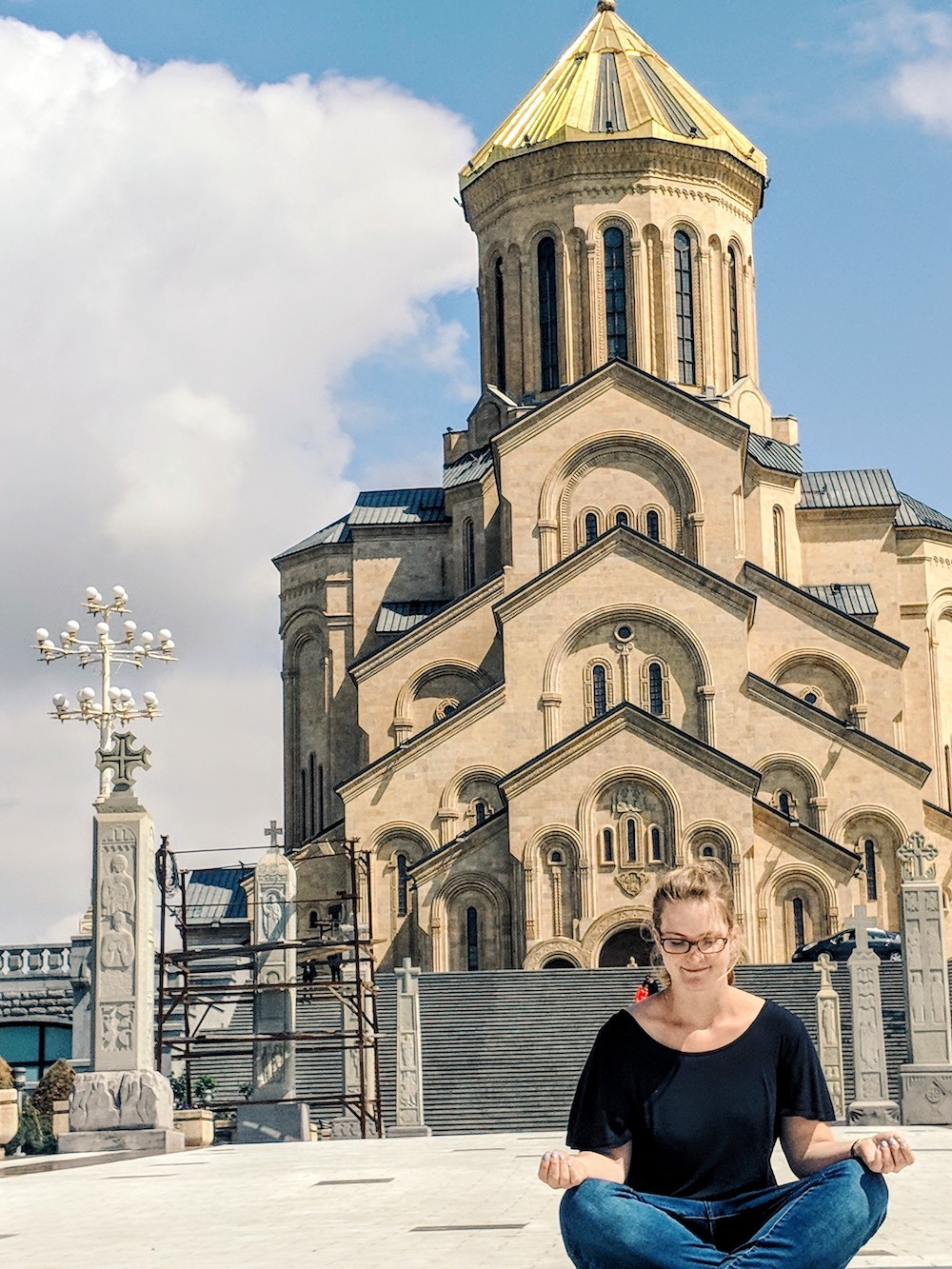
People travel for all sorts of reasons. Italy attracts the food and culture lovers, Colombia attracts the adventure and adrenaline seekers, and Fiji attracts those that just want to relax and get away from it all. When it comes to choosing what destination I want to visit, I have to take several things into consideration. For example I need to research how I will get around. Some countries won’t have a good public transport system and many places are best explored by car which doesn’t work for me. I have no license and not to mention the stress of driving in a foreign country.
I also need to consider what activities are available. As an example when I was in Colombia a few years ago, I visited this cute town called Minca. Minca is the starting point to a famous and intense trek called La Cuidad Peridida (The Lost City). I would have loved to do the trek but unfortunately due to my horrible balance it wouldn’t have been wise nor safe for me to do it. Luckily there was still a lot I could do in Minca.
Another very important consideration is the weather. Heat triggers some pretty nasty migraines. When I visited Colombia I got hit with a really bad one. I spent the first two days of my trip sprawled out on my bed with my portable fan inches from my face. You can read about my full Colombia experience here.
Anyway, there is a lot I have to consider when planning a trip and I could go on and on, but these three things I would say are the most important and can really make or break a trip for me.
I shouldn’t expect to keep up with everyone else
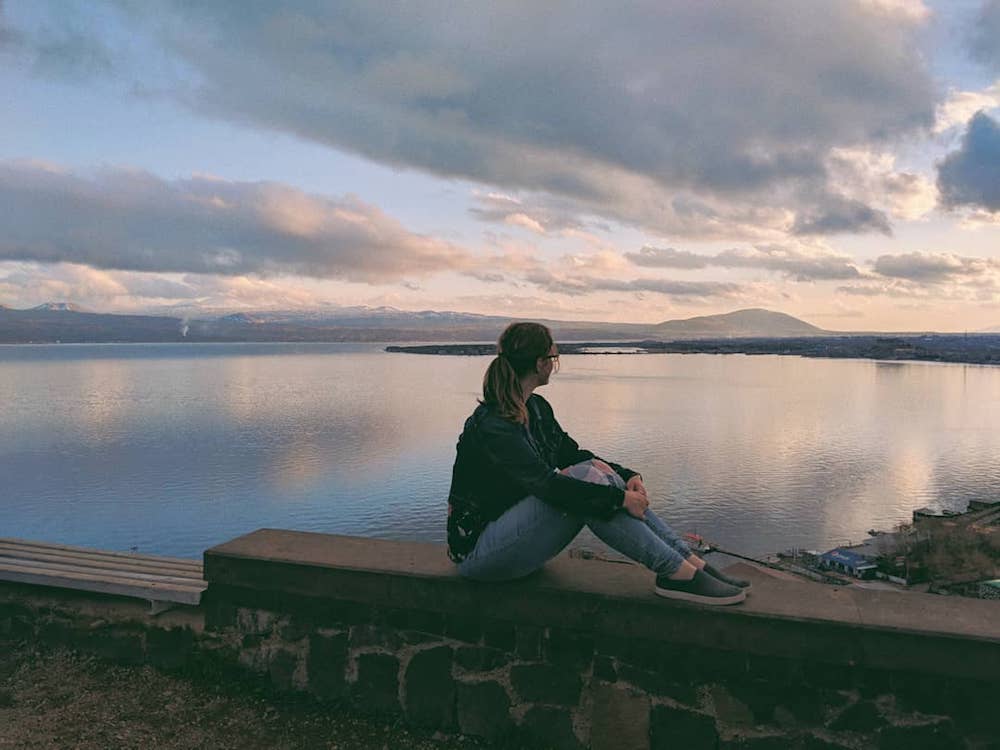
Often times, we unconsciously think that we have to achieve what others have already achieved. We forget that we are all on a unique journey and shouldn’t compare our achievements to others. That, unfortunately, is a lesson many people don’t learn. YOU ARE NOT GOING TO BE GOOD AT EVERYTHING.
I have spent much of my life comparing myself to others, and I now know how unhealthy that was. Many activities people find “easy,” like hiking or biking, are activities I struggle with. I would see my friends learn to ride a bike and wondered why I couldn’t learn to ride with them. I would be jealous and resentful because I couldn’t keep up with them.
When I traveled to Asia on a 14-day tour, one of the included activities was a bike tour. I was embarrassed to say I couldn’t ride a bike, and telling my tour guide was difficult, but he very nicely sorted out an alternative. I ended up following the tour in the back of a Tuk Tuk. The same thing happened on a 9-day tour of Ireland, except I wasn’t alone. While the majority of people on tour rode bikes, a few of us explored by van.
In the past 8 years of traveling, I have learned that I have my own strengths and weaknesses. I know that seems like a simple lesson to learn, but it’s an important one. I needed to accept that I can’t be good at everything. As much as I would love to bike through tulip fields in the Netherlands or go on a trek up to Machu Picchu, it’s just not possible, and I am okay with that.
Traveling solo is easier than traveling with people.
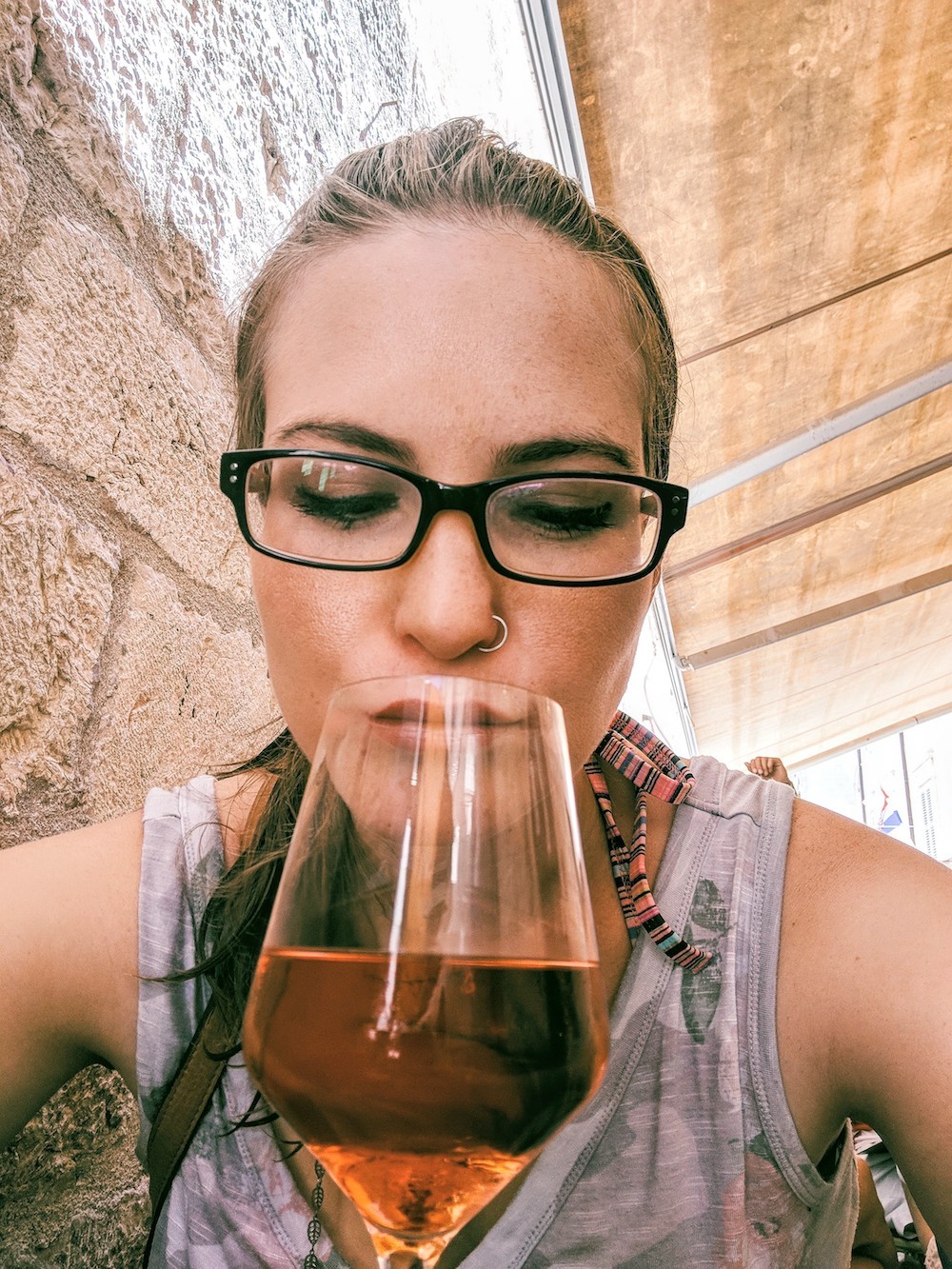
“As you travel solo, being totally responsible for yourself, it’s inevitable that you will discover just how capable you are!” – Unknown.
Boy, do I have a story for you! A couple of years ago, I was getting ready to leave on a 6 month trip to Europe. I was planning on traveling for 4 1/2 months by myself and the first 1 1/2 months with a group I met on a day tour in Germany. They told me they were studying in Athens, Greece, and were planning a trip to Georgia, Armenia, Azerbaijan, and Turkey in April. After spending hours “getting to know each other,” they invited me to join. I must have given them a great first impression!
Fast forward 6 months, and I arrived in Athens. I spent about a week there before we left on our trip.
Everything started smoothly. I told them before I booked the trip about my disability. They seemed okay with it. I told them I wouldn’t be able to go hiking, bike riding, and if we stayed in hostels, I had to have a bottom bunk (I have fallen off of top bunks before!), and if they had a problem to let me know.
It turns out they did have a problem and did not let me know until THE END of the trip. Their main issue was my need to have a bottom bunk in every room. I told them that I have trouble climbing up to the top bunk because of my balance, and I even offered to get another room so everyone could have a bottom bunk.
They continuously said it was fine, even though it clearly wasn’t. Our trip just went downhill to the point where I had to start sightseeing alone. They started calling me names and every time I would hang out with them, they would make me feel like crap for having a disability and not being able to keep up with them. In the end, I left. I was traveling to some amazing countries, and I wanted to have fun. I did the rest of the trip alone, but I learned my lesson about traveling with people I don’t know very well.
It doesn’t work for me.
I need to set boundaries.
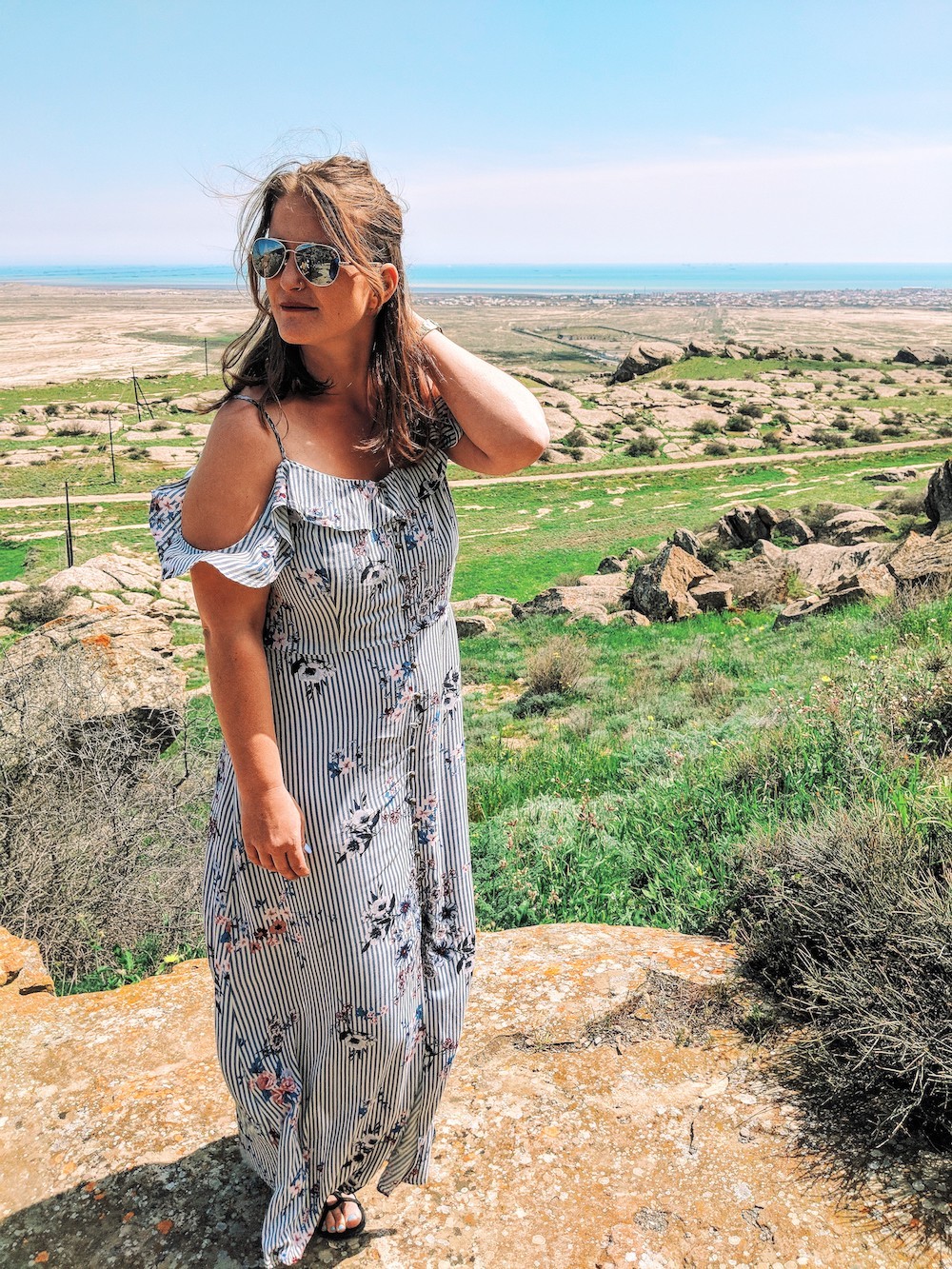
Learning to set boundaries has been one of the hardest lessons for me to learn because frankly I say yes to pretty much everything. Not because I want to but because I feel obligated to. I get this crazy idea in my head that if I don’t say yes the gods will punish me somehow. Regret will start building up inside of me and eventually burst out in the form of anger & tears.
Setting boundaries for myself means being honest about the things I can and can’t do. being okay with saying no if there is something I don’t want to do or can’t do, and taking responsibility for my own happiness.
Having a disability is nothing to be ashamed about

Why has it taken me so long to realize this? HAVING A DISABILITY IS NOTHING TO BE ASHAMED ABOUT. I think everyone with a disability can relate to having feelings of displacement in a world of what seems like non-disabled people. I have definitely felt like my life would be so much better without a disability, but the truth is, I have no idea what life would be like. Having a disability is all I have ever known, and to be honest, it’s all I ever want to know.
My incredible family and friends remind me every day; I wouldn’t be who I am if I didn’t have Ataxia. I wouldn’t have my bubbly personality, my ability to make a room full of people laugh, and my “I don’t care what people think of me” attitude.
I mean, who knows who I would have been without Ataxia. After years of wishing to be “normal,” I am at peace with it. Nobody, including myself, ever thought I would be traveling the world solo and having so many incredible experiences. The doctors told my mom I wouldn’t be capable of taking care of myself. You know what? I proved all of them and myself wrong.
Would I give up my condition to live a life of normalcy? I mean, first of all, what is normalcy? And second of all, no way! I don’t want to think about life without Ataxia.



Thank you for so bravely speaking about Ataxia. I must admit that I had never heard of this disability before, but it’s so incredible to see all that you are accomplishing and experiencing as a strong and independent woman. May you continue to see all the beauty in the world and inspire others through your words and experiences. ?
Thank you so much! It’s not easy, but I manage. I love travel too much to let my disability get in the way.
You’re an inspiration! I have progressive scoliosis which means on some days I have severe back pain. It’s exhausting, depressing sometimes and I’m still navigating this world of chronic pain while exploring the world.
Wishing you many more adventures :)
Yeah, I can 100% relate. Many people don’t realize the challenges we go through with our disabilities and let alone traveling with our disabilities.
Thanks for sharing your story! And what a way to embrace who you are and follow your passion despite your challenges, it’s such a beautiful lesson for others (including myself) to be reminded of. Looking forward to hearing about more of your adventures!
Thanks Michelle! Life is to short to just sit around and sulk.
Thanks for being so open about your disability. Not all disabilities are visible, I’m glad you wrote about Episodic Ataxia and made people aware. This is the first time I have heard about it. You rock!
I try and be as open as I can about my disability. Thank you for your kind words.
This is such an inspirational and heartfelt post – I have to admit that I hadn’t known about this disability and I am in awe of how bravely and positively you have found your way to deal with it. I wish you many, many more memorable adventures. Stay positive, stay happy.
Thank you so much Aditi!
Thank you for sharing all of your experiences with us all. This is such an inspiring story and I’m so glad you’re still able to travel!
This is so inspirational, thank you so much for sharing with us!
Thanks, Sam!
Wow! I am in awe of you. To be able to do all this in your position. My disability is different from yours and not as in depth. I broke my neck two years ago and it is fused. Giving up traveling alone was hard for me. But your life has been inspiring and although I’m way older you have given me hope and my brain is going a mile a minute. Love your blog.
Thank you so much! So many people with disabilities don’t think traveling is possible and I want to show them that it is. Thank you so much for your kind words. It means so much to me.
Thank you
Our son has Ataxia and is totally amazing like you
He was diagnosed at 30 after living in London for 5 years and travelling lots
Fortunately he does not get migraines and is still driving a car
But there is no medication and we will always pray for a cure one day
Sincere appreciation for your inspiration and honesty
Wow! We are very similar. Your son sounds amazing! I am on meds which help with my symptoms, but I always hope for a cure one day too.
I loved what you said about being capable of traveling solo! My daughter was in an accident last year, and I know that one day she hopes to be able to travel solo. For now, I’m hoping she can hire an assistant that can help her with daily tasks.
I am so sorry your daughter is going through that. I hope she gets to do some traveling one day!